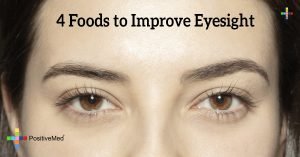
Your child has hit that magical age where they are starting the transition to adulthood. The first step their bodies are taking is pushing out the baby teeth, and replacing them with the permanent adult teeth they will have the rest of their life. However, wait, before you throw out those little pearly whites, those teeth may just help save your child’s life!
Now wait a minute, how could a little tooth help so much? Each tooth is comprised of many microscopic cells. In 2003, Dr. Songtao Shi from the University of Pennsylvania found that teeth contain a very useful cell called the step cell. These stem cells are so powerful because they can into just about any type of cell in the body.
How Can Teeth Help Save A Life?
Stem cell therapy has been used for more than 30 years to help treat various conditions like leukemia and lymphoma. There is also a lot of research being done on the use of stem cells to treat neurodegeneration (like Parkinson’s and Alzheimer’s), brain and spinal cord injuries, heart conditions and defects, blood-cell malformation, blindness, pancreatic disorders and more.
The challenge to stem cell research has been the source of the stem cells. Finding compatible stem cells can be challenging. Most stem cells come in current therapy come from donor bone marrow, which can be very limited. The next source of viable stem cells comes from umbilical cord blood when a baby is born. However, this procedure can seem invasive to some people.
Teeth, on the other hand, fall out naturally as part of the growing process and contain these incredible stem cells. That means most people do not see it as invasive as collecting these cells from other methods.
RELATED ARTICLE: Essential Reason to Keep Wisdom Teeth
When you store your child’s baby teeth, you are locking away their own stem cells, which mean they are compatible with their body, as insurance to use if they develop some of these unfortunate conditions later in life.
Can’t I Just Store The Teeth In My Drawer?
While it would be convenient to throw the teeth in an envelope and store them in a drawer, unfortunately, that process does not offer the same medical benefits. Once the tooth falls out, the cells die rapidly; the stem cells need to be harvested before they expire.
Due to the time constraints, teeth are extracted by a dentist, and then rushed to a lab for processing. The processing generally includes extracting the stem cells from the teeth, growing them in a culture, and then storing them at extremely cold temperatures, up to about 100 below zero Fahrenheit.
Dentist can extract a loose tooth, a wisdom tooth, or a permanent tooth to harvest the stem cells. However, do not think your child can just wait until they need the stem cells and then have a tooth pulled. Stem cells lose their power with age. While the stem cells from children’s teeth are very powerful, as they get older, those stem cells will no longer be as useful as they once were.
So How Do You Get Started?
Several labs offer the extraction and storage of oral stem cells. The best thing to do is to contact your dentist and find out which options he or she recommends. You can also look at labs like Store-A-Tooth or StemSave. The important thing to do is consider how valuable these cells may be for your child’s future, and decide whether you want the extra insurance that only they can provide to themselves.






